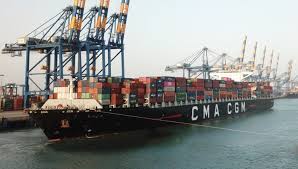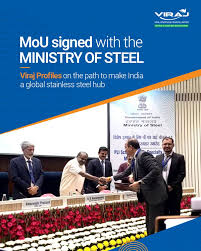Tej Contractor stresses the need for a diverse skill set encompassing operations, soft skills, tech proficiency, and legal knowledge. Logistics education must adapt to AI and automation, promoting innovation and inclusion for future-ready professionals.

Educational institutions collaborate closely with industry leaders to align curricula with evolving workforce needs
In the rapidly evolving world of cargo and logistics, Tej Contractor, Executive Committee Member, Federation of Freight Forwarders’ Associations in India (FFFAI), sheds light on the essential skills and knowledge areas vital for graduates to excel. A blend of operational, soft, and technical skills, coupled with adaptability and astuteness, is imperative in this dynamic sector. Proficiency in technology, a comprehensive understanding of supply chain management, and adeptness in navigating legal intricacies are paramount. With customs regulations, trade compliance, and security measures being key pillars, effective problem-solving and project management abilities are indispensable for seamless goods transit and tackling emergent challenges.
Logistics education embraces technological advancements like AI and automation. Programs now integrate AI basics, covering supply chain management, warehouse operations, and logistics optimization. Adaptability is key to staying current in this evolving field.
Future logistics
In the ever-evolving landscape of logistics careers, adapting to technological advancements stands as both a challenge and an opportunity. The necessity to innovate and evolve is paramount, with automation poised to revolutionize the field. Technological integration emerges as a pivotal game changer, emphasizing the importance of continuous skill acquisition to remain relevant. Educational institutions play a crucial role in fostering innovation and entrepreneurial thinking among logistics professionals. By providing practical experiences, networking opportunities, and seminars on entrepreneurship, they create an environment conducive to creative problem-solving and proactive approaches, thus preparing individuals to thrive in the future of logistics.
Inclusive logistics
Efforts to enhance diversity and inclusion within the cargo and logistics sectors are gaining momentum. While historically male-dominated, initiatives such as the Women’s Wing of trade bodies like the Federation of Freight Forwarders Associations in India and the Mumbai Customs Brokers Association are fostering change. Organizations are actively recruiting people from diverse backgrounds while providing training on diversity and inclusion. These measures aim to cultivate a more inclusive workforce, ensuring representation and equity. Through events, field visits, and ongoing awareness programs, the industry is striving to create an environment where all individuals, regardless of gender or background, can thrive and contribute to the dynamic world of logistics.
Industry collaboration
Educational institutions collaborate closely with industry leaders to align curricula with evolving workforce needs. Recognizing the gap between outdated teaching methods and industry requirements, initiatives like the Indian Institute of Freight Forwarding (IIFF) prioritize practical education. Through standardized courses and online portals, they equip students with skills crucial for the logistics sector. Emphasizing industry relevance, partnerships bridge the gap between academia and practice, ensuring graduates are prepared for the demands of tomorrow. By fostering dynamic collaborations, educational institutions pave the way for a workforce that is not only skilled but also attuned to the evolving landscape of logistics.











